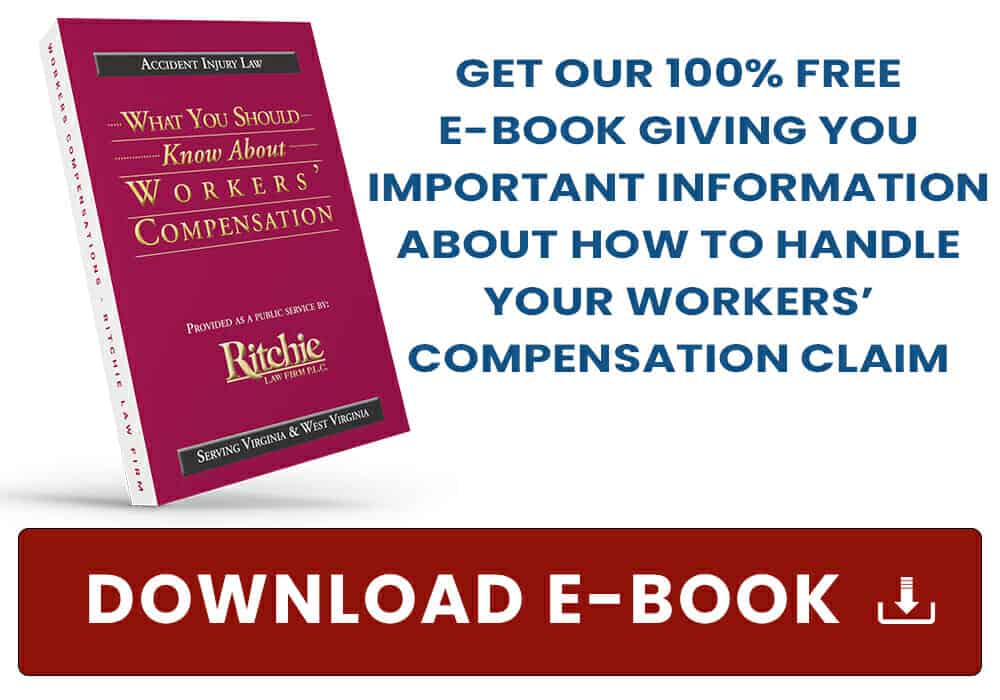Light-Duty Workers Compensation
If you have a serious on the job injury, you may be out of work for quite a while. When you begin to recover and heal from your injuries, your doctor may eventually say that you are well enough to perform light duty work or modified job duties.
What is Light Duty Work?
The purpose behind light-duty work is to get an injured worker back to gainful employment and to help relieve the employer’s burden of paying future lost wages when the worker can’t perform his or her regular job. An additional goal of light-duty work is to ease you back into the workforce by minimizing the risk of re-injury.
Light-duty work in a Virginia workers’ compensation claim means any work that has lesser or different exertion levels than your normal job duties for the job you did before your injury. For instance, you may be a construction worker and your doctor may say that you can’t do any work involving lifting, climbing, etc. for a period of time. In that case, you would not be able to work in your regular job as a construction worker. However, injured workers might be able to do other work that complies with the limitations their doctor prescribed, and those jobs would be considered light duty jobs.
Mike Ritchie offers tips for dealing with light-duty jobs with a workers’ comp claim in this video:
Light-Duty Job From Your Employer
Your employer may be able to provide light duty work for you. The light duty assignment or modified duty from your employer should meet your physical limitations and medical restrictions that your doctor has provided. However, if the modified duty job doesn’t comply with your doctor’s work restrictions, you will need to report to both your employer and your doctor your inability to perform the light duty position.
If your employer doesn’t have light duty positions available that fit your medical restrictions, you will be required to apply for jobs at other companies that fit your light duty restrictions. The Virginia Workers’ Compensation Commission has said that initially looking for jobs in the field that you are most familiar and comfortable is reasonable and will satisfy the marketing requirement for searching for light duty jobs.
Working With A Rehabilitation Counselor
The workers’ compensation insurance company may have a rehabilitation specialist work with you to help you find a job that meets your restrictions. An injured employee generally has no responsibility to work with a vocational counselor unless the worker’s doctor has actually communicated that the worker has been released to light-duty work and has communicated work restrictions. However, usually the injured worker who has been released to light duty jobs can’t refuse to meet with the vocational counselor. Such refusal can be seen as a failure to cooperate and your benefits can be terminated.
Also, if a rehabilitation counselor finds a light-duty job for you, you are usually able to have your doctor approve the job description before accepting. To be a valid light-duty job offer, the offer must be within the light duty limitations imposed by your doctor. If your physician approves your light-duty job offer but the actual requirements of the job are different than the job description, the doctor’s approval becomes invalid. However, if the light-duty job description mirrors the doctor’s restrictions, there is typically no need for physician approval.
If a rehab specialist works with you, the rehab worker must make prior contacts with any potential employer before bringing you to interviews at the new job sites. This prevents the rehab worker from bringing you to meaningless interviews that would never be expected to result in suitable employment.

Refusal To Cooperate
If an injured worker refuses to cooperate with a vocational counselor that the employer provides, the workers’ compensation benefits may be suspended. Additionally, if you purposefully sabotage an interview that the rehab counselor gets for you or purposefully fail when offered a light duty job, your benefits can be suspended for unreasonably refusing light-duty work. Usually, an injured worker can’t turn down a light-duty job simply because he or she can’t find childcare.
Workers Compensation Benefits: Paid Less?
If a light-duty job pays less than you were making before your injury, you may be entitled to reimbursement of the difference from the employer. However, the goal behind rehabilitation and light-duty work is to eventually return you to the wage you were making at the time of your injury, so that you don’t continue to incur lost wages.
Education and Retraining
If you are unsuccessful in being offered a light duty job within your restrictions and it appears your restrictions may be permanent, the workers’ comp insurance company may be required to offer education or retraining for you. On the same note, if injured employees incur expenses as a result of working with the vocational counselor or finding a job on their own, they may be entitled to reimbursement from the insurance company. For instance, injured employees may be entitled to reasonable moving expenses, as well as the cost of transportation to and from vocational training courses.
Workers’ Compensation Law
As you can tell by all the rules involved just with light-duty work, workers’ compensation in Virginia can be a tremendously complex system to decipher. If you or a loved one are injured at work and have been given work restrictions, it helps to have an experienced lawyer helping you. However, sometimes lawyers who handle cases other than injury cases don’t have the necessary experience to properly handle a workers’ comp claim. The best workers’ compensation lawyers will be those who have handled this area of practice for many years and who have helped many injured clients. The best workers’ compensation lawyers will know the answers to the most pressing workers’ compensation questions, such as whether you can recover for pain and suffering in Virginia workers’ compensation or what happens when you reach maximum medical improvement.
Workers’ Compensation Lawyer
At the Ritchie Law Firm, we’ve been helping injured workers for more than 50 years. We have helped thousands of workers receive workers’ compensation benefits. If you have been injured in Virginia, call our office at 800-277-6124 to discuss the possibility of a free consultation. There is no charge to talk to someone about your case. If you decide you would like us to help, we get no attorneys’ fees unless we are able to win for you. There is no risk for you to contact us, and we might be able to help or give you advice to put you on the right track.

Talk To a Virginia Workers’ Compensation Lawyer
If you’ve been injured on the job and are struggling to deal with your nurse case manager, it is wise to talk to a lawyer who is experienced in workers’ compensation claims. At the Ritchie Law Firm, you can talk to us for FREE . . . NO STRINGS ATTACHED! We can give you advice on your claim before you make a decision that could damage your case. Check out our article on “How Much Does a Workers’ Comp Lawyer Cost” here.
For more than 45 years, the Ritchie Law Firm has successfully helped thousands of injured workers navigate the complex workers’ compensation process. The Ritchie Law Firm specializes in serving injury victims. We never represent insurance companies or corporations. If your workers’ compensation case is going to hearing, you will want a trial expert on your side. We are board certified trial specialists through the National Board of Trial Advocacy. The attorney you choose for your workers’ compensation case can make all the difference.
Virginia Workers’ compensation is a complex system that can be very difficult to navigate. Be very careful to make certain that your rights are protected before you sign anything. There is no cost to talk to our workers’ comp lawyers. If we take your case, we don’t get a fee unless we win your case. There is no risk to you to get some information about your case before you make any decision that might negatively affect its outcome.
Choose wisely. . . you can talk to us for FREE.
Call today 800-277-6124, fill out the form below or
download our free ebook in the side panel.
Ritchie Law Firm is a personal injury law firm devoted to helping individuals who have suffered serious injuries as a result of a work accident. Ritchie Law Firm serves all of Virginia, while helping clients in cities and surrounding areas of Harrisonburg, Charlottesville, Staunton, and Winchester also serves clients in West Virginia, including Martinsburg, WV.


